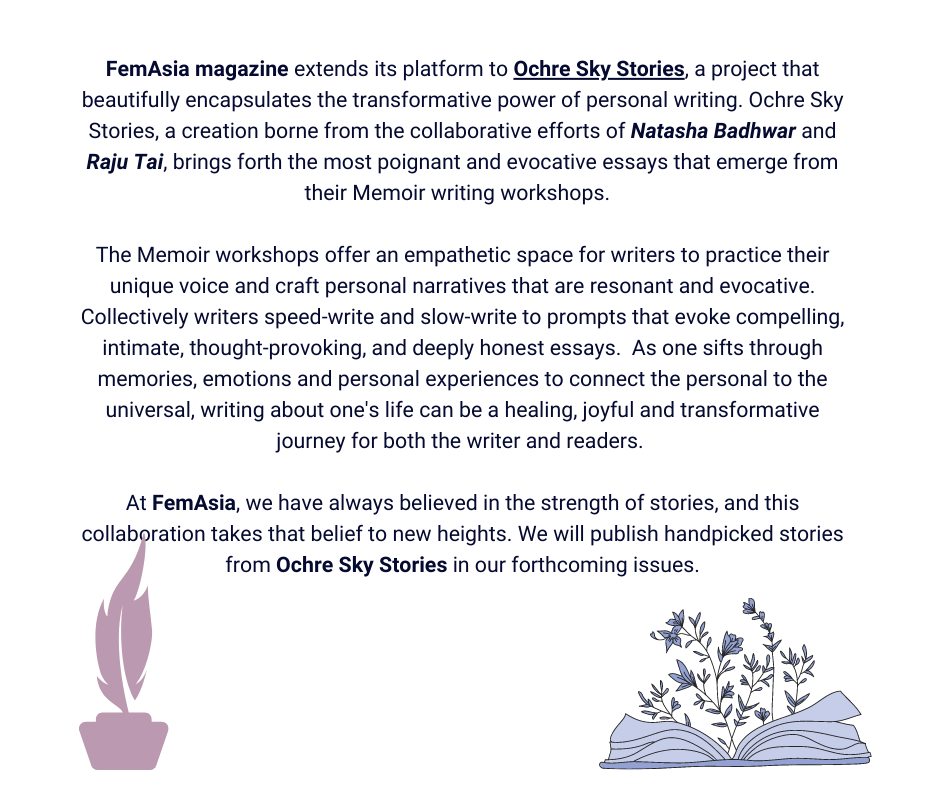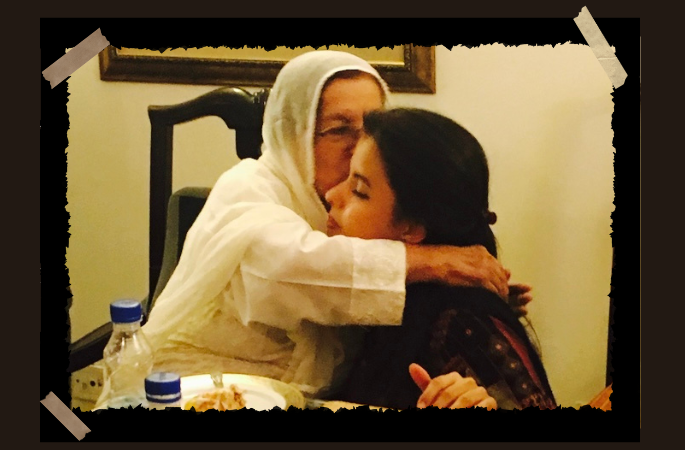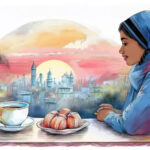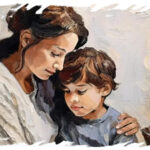“Tumhari daawat hai aaj humare yahan” (You are invited for a party tonight). Words that would stir mixed emotions in me each time I heard them echo from my phone. I would be annoyed because it meant not being able to spend the night in my own home with my cat, frustrated because I had already made plans of sitting all night at my desk and finishing my edit to meet a deadline. Along with that it would also worry me, worried if she is okay.
“Tumhari daawat hai aaj humare yahan”. These were the words my Dadi Ammi (grandmother) would use every time she wanted me to come spend the night with her when she wasn’t feeling too well. Since August 2016, due to kidney failure she had been undergoing dialysis, thrice a week. It was torturous, she had lost a lot of weight, she barely had any energy, especially on the days she would have to go through 4 hours of dialysis. But she fought relentlessly. In the hope that one day, it will be over, that day never came.
Keeping my mixed emotions aside, I would laugh a little and say “Ji dadi ammi, main aati hoon thodi der mein aapke pass” (I will be there soon). As I would put the phone down, I would start questioning, the patriarchal system that had made caregiving a job solely for women. Being the only unmarried woman in the family, it had somehow been assumed as my responsibility to step in every time another woman was not able to provide care. I almost felt obligated to say yes. Sometimes I would think maybe I should put my foot down and say no for once but saying no meant being labelled several labels, a battle that would take generations to win.
I would pack a small bag with essentials for the night and walk a couple of houses down the lane to my grandmothers house. I would greet the aunt, uncle and their 2 sons who lived in that house as well and head towards my grandmothers room. I would often find her dozing off in her chair. I would quietly keep my bag down and sit next to her, scrolling away on my phone. She would wake up eventually, she would ask me the routine questions – “Aaj khane mein kya paka tha? Abbu jaag rahe the ki sone chale gaye? Ammi ne khana kha liya tha? Tumhara billa kaisa hai? (What was cooked for dinner? Had your father gone to bed? Did your mother eat dinner? How is your cat?) And then we would get down to some gossip, some serious talk about life, marriage and coexistence. She would often read out a comic strip from her Urdu newspaper. Mind you, she is having these conversations at times when her body has completely given up. Among all the exhaustion she always had energy for some catching up.
We would speak some more and I would urge her to go to bed. I would offer to assist her in getting up from her chair, but she would refuse, always wanting to try getting up on her own first. I would carefully guide her towards the bed, assist her in changing her clothes, take out her hearing aid and place it on her bedside, place a cushion next to her for her comfort. As she would lie down, I would take off her spectacles, tuck her under the blanket and greet her ‘Allah Hafiz’ (may God protect).
After putting Dadi Ammi to bed, I would head towards the diwan, the perfect blend of a bed and a couch, pick up the fresh bedsheet kept out by her, spread it neatly and sit down to get some work done. Keeping an eye on her, paying attention if she is restless, if she needs anything, being only half present to meet my work deadline. Sooner rather than later, I would doze off. At times she would call out for me in the middle of the night, I would somehow always instantly get up and rush towards her, a quality she would always praise me for later.
Another thing that patriarchy has imposed on women as the caregiver is feeling ashamed of asking for care. Asking for help. Women feel obligated to suffer and sacrifice in silence as they feel it is their destiny. It would take my grandmother a lot of courage to pick up her phone and ask me for help when she needed it. She felt ashamed that her body was not cooperating with her in staying strong. She would often apologise to me for the inconvenience she was causing. It was in such moments that I would feel ashamed of feeling frustrated and annoyed when she would ask me to spend the night with her.
The daawat (party) that I was invited for actually happened the next morning. I would almost always wake up to the sound of her reciting the Quran in her chair. There was something weirdly calming about it. It was almost like a lullaby, I didn’t understand most of what she read, but it definitely put me to sleep rather than wake me up. Soon, I would be woken up by the smell of fresh sooji ka halwa (semolina pudding made in lots of ghee and sugar with some coconut and dry fruits) that my Dadi Ammi asked my aunt to prepare for me. That was surely a party worth not missing. Dadi Ammi and I would sit together to enjoy our little treat, with her almost always overfeeding me.
My Dadi Ammi was 21-years-old when her elder sister passed away due to cancer. Leaving her husband and six children behind. She later married her sisters husband because those 6 children needed care, needed a mother. She was 21-years-old and she dived head first into a life of caregiving and nurturing. Even in her moments of weakness, caregiving was all that she knew, it had become a deeply ingrained habit that she couldn’t forget till her last day. She was the strongest woman I know. She passed away in November 2022. I think more than losing my grandmother, I was sad about losing a friend. A friend who cared for me even when she wasn’t in a state to care.
I am glad she had the quiet courage to reach out to me when she needed me. Because of that I got the opportunity to party with my Dadi Ammi on several nights, in multiple hospitals, tried different kinds of chai, breakfast, lunch and dinner options with her, I got to learn more about her life and share some bits of my own with her. I miss partying with her. For once, something good came out of patriarchy.
This essay was written in response to the prompt ‘An Act of Courage – exploring quiet courage’ in the Ochre Sky Memoir writing workshop facilitated by Natasha Badhwar and Raju Tai.




